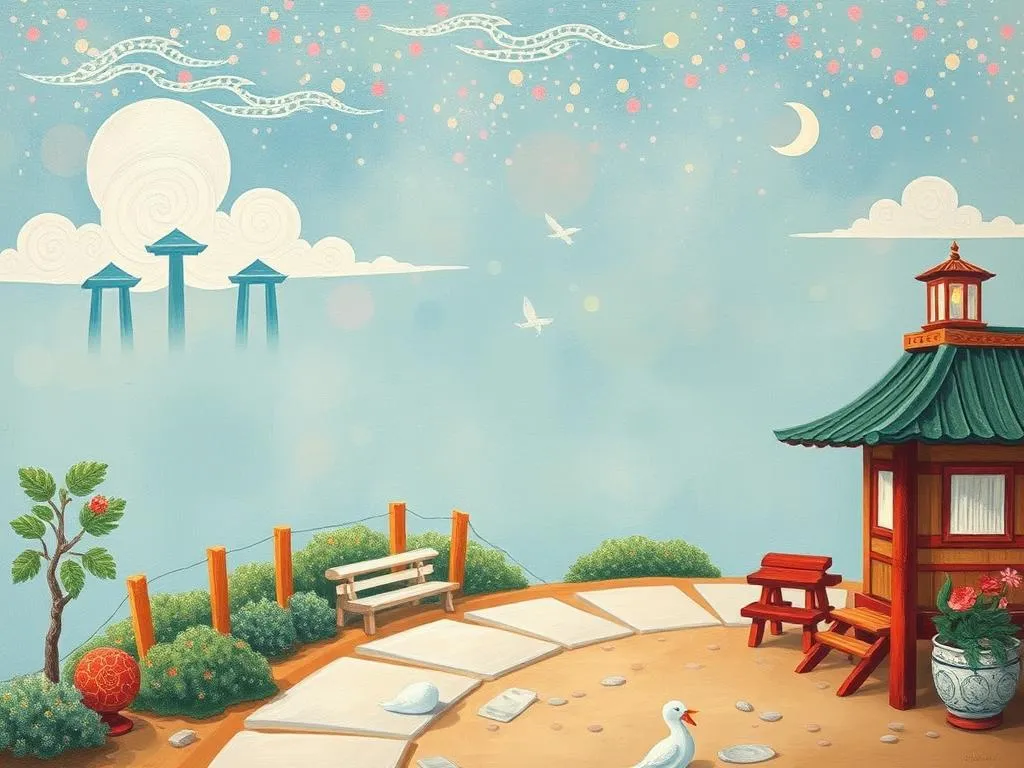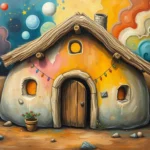
Dreams serve as a fascinating window into our subconscious, often reflecting our thoughts, feelings, and experiences in symbolic ways. Among the myriad themes that can arise in our dreams, the imagery of a Japanese-style place—whether it be a traditional tea house, a serene garden, or a bustling street in Kyoto—can evoke a rich tapestry of meanings. This dream topic resonates with many individuals due to Japan’s unique culture and aesthetics, which encompass tranquility, spirituality, and a deep connection to nature. Thus, dreaming of a Japanese-style place can be both intriguing and enlightening, offering insights into our inner worlds.
Symbolism and Meaning
To understand the significance of dreaming about a Japanese-style place, it is crucial to analyze the symbols involved. Japanese culture is steeped in rich symbolism that can manifest in various forms within dreams. For instance, cherry blossoms, commonly associated with Japan, often symbolize the transient nature of life. When you dream of cherry blossoms in a Japanese garden, it may reflect a desire to embrace change, recognize the fleeting moments of beauty, or even a reminder to appreciate the present.
Another potent symbol is the tatami mat, a traditional flooring material in Japanese homes. If your dream features tatami, it may represent comfort, simplicity, and a return to one’s roots. Tatami can also signify a space for reflection and meditation, suggesting a need for introspection in your waking life. The presence of a Koi pond in your dream could symbolize perseverance and strength, as Koi fish are known for their ability to swim upstream, overcoming obstacles. The serenity of water in dreams often represents emotional depth, urging dreamers to explore their feelings more profoundly.
Moreover, the architectural design found in Japanese-style places, such as minimalist aesthetics and harmony with nature, can be interpreted as a longing for balance and peace in your life. Many people are drawn to these qualities, as they reflect a desire to cultivate an environment that fosters clarity and tranquility.
From a psychological perspective, dreaming of a Japanese-style place may indicate a need for cultural connection or a reflection of your personal interests. If you have a fascination with Japan or its traditions, these dreams might serve as a manifestation of your passion, urging you to explore these interests further. Alternatively, they may symbolize a journey into your own heritage or ancestry, especially if you have Japanese roots or a connection to Asian culture.
Key Scenarios and Variations
The context in which a Japanese-style place appears in your dreams can greatly influence its interpretation. For example, if you dream of wandering through a traditional tea house, it may evoke feelings of hospitality and warmth, suggesting a desire for connection with others or a need to slow down and appreciate life’s simple pleasures. In contrast, if the tea house feels empty or abandoned, it may signify feelings of isolation or a longing for deeper relationships.
Another variation could involve dreaming of a Zen garden. This scenario often symbolizes a quest for inner peace and mindfulness. If you find yourself arranging stones or raking sand in your dream, it may indicate a desire to organize your thoughts or emotions. You might be seeking clarity amidst confusion, urging you to cultivate a more mindful approach to your daily life.
Conversely, dreaming of a busy street in Tokyo can represent the hustle and bustle of modern life, highlighting feelings of overwhelm or stress. In this context, the dream may serve as a reminder to take a step back and evaluate your priorities. Are you too caught up in daily responsibilities, neglecting your well-being? This scenario can serve as a wake-up call to find balance amidst the chaos.
Additionally, if you find yourself experiencing a festival or celebration in your dream, such as Hanami (flower viewing), it may point to joy, community, and the importance of cherishing moments with loved ones. This scenario may encourage you to embrace the festivities in your own life, fostering connections and celebrating the beauty around you.
Sometimes, the dream may involve elements of nature, such as mountains, rivers, or forests found in Japanese landscapes. These elements can symbolize strength, stability, and the importance of grounding oneself. If you find yourself climbing a mountain in your dream, it could represent a personal challenge you are facing in your waking life, urging you to persevere and conquer obstacles.
Real-Life Connections and Takeaways
Reflecting on dreams of Japanese-style places can provide valuable insights into our waking lives. These dreams often serve as a mirror, reflecting our innermost thoughts, desires, and feelings. To connect these dreams to real-life situations, consider the emotions you experienced during the dream. Were you at peace, excited, anxious, or lost? Understanding these feelings can help you identify areas in your life that may require attention or change.
For instance, if you felt a sense of tranquility in your dream, it may suggest that you need to create more moments of calm in your daily routine. Perhaps engaging in mindfulness practices, such as meditation or yoga, could help you cultivate a sense of inner peace. On the other hand, if the dream evoked feelings of stress or chaos, it could be an indicator that you need to reevaluate your commitments and prioritize self-care.
Moreover, consider the symbols and scenarios present in your dream. Are there specific elements that resonate with you? For instance, if cherry blossoms appeared, reflect on their meaning of transience. Are there aspects of your life you need to embrace and appreciate while they last? This could relate to relationships, career opportunities, or personal experiences. Embracing the lessons of the dream can foster a deeper understanding of your current life situation and inspire positive changes.
It can also be beneficial to explore any cultural connections you may have with Japan or its traditions. Whether through art, literature, cuisine, or travel, engaging with these aspects can enrich your understanding of yourself and your dreams. If you find yourself drawn to specific cultural elements, consider how they might reflect your own values or aspirations.
In essence, interpreting dreams of Japanese-style places invites introspection and self-discovery. By reflecting on your dreams, you can unlock deeper meanings that resonate with your personal journey.
Encouraging Personal Reflection
Encouraging personal reflection is vital for understanding the messages behind your dreams. As you ponder your experiences in Japanese-style places, ask yourself questions that delve deeper into your emotions and thoughts. What feelings arose during the dream? How do they relate to your current life circumstances? By journaling or discussing your dreams with a trusted friend, you can gain further clarity and perspective.
Consider also the cultural elements that stood out to you. Did any specific symbols or scenarios resonate more than others? These reflections can help you identify recurring themes in your dreams and their connection to your waking life.
In conclusion, dreams of Japanese-style places carry profound meanings and symbolism, inviting us to explore our inner worlds and connect with our emotions. By engaging with these dreams and reflecting on their messages, we can cultivate a greater understanding of ourselves and the paths we wish to pursue. As you continue to dream, remain open to the insights that arise, for they may hold the keys to your personal growth and fulfillment.







